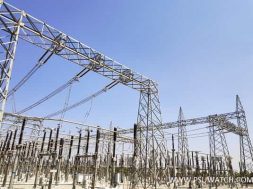
Four British banks have provided $31.8 billion of financing to coal companies in the past three years, even as they publicly moved away from doing business with some of the fossil-fuel industry, according to Greenpeace.
The environmental group said Barclays Plc, HSBC Holdings Plc, Standard Chartered Plc and Royal Bank of Scotland Group Plc provided “life support” to companies with plans to build new coal plants, according to a report published Thursday.
“The coal industry should be on its deathbed, but is being kept alive only by desperate and dirty funding from banks,” said Rosie Rogers, head of Greenpeace U.K.’s climate campaign.
Greenpeace’s data tracked loans and underwriting of debt securities from the start of 2016 to Sept. 30 of this year. Since 2016, all four of the banks have said they’ve stopped lending to new coal-fired power plants. The banks have moved away from other hydrocarbon businesses: HSBC has said it won’t finance projects in Canada’s oil sands, for instance, and RBS has followed suit.
When contacted by Bloomberg News for comment on Greenpeace’s data, all four banks’ press officers pointed to these policies and simultaneous efforts to finance renewable energy.
Barclays, however, disputed some of Greenpeace’s methodology. The group’s data on coal lending would count a Barclays loan to a coal-producing conglomerate’s renewable division, for instance, even if the bank had no relationship financing coal production, according to a spokeswoman for the lender.
Financial firms are under pressure from environmental groups to cut funding to businesses that emit large amounts of carbon dioxide, such as coal plants, and instead support climate-friendly projects. Another source of pressure is the rise of green investing, where funds have an explicit mandate to avoid buying stocks in companies perceived to fund dirtier industries.
Greenpeace’s data was provided by Urgewald, a non-profit environmental and human rights organization, and BankTrack, a Dutch not-for-profit group that campaigns against the financing of projects it deems environmentally or socially harmful.














